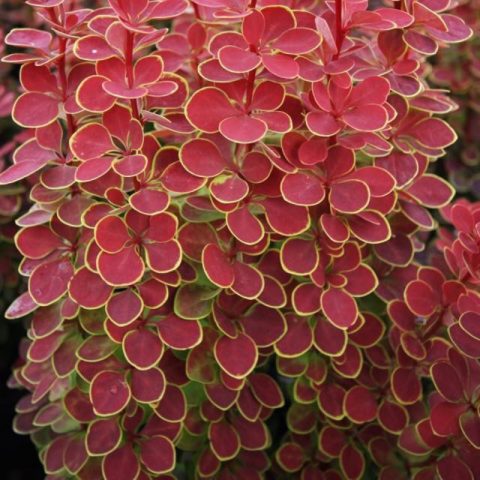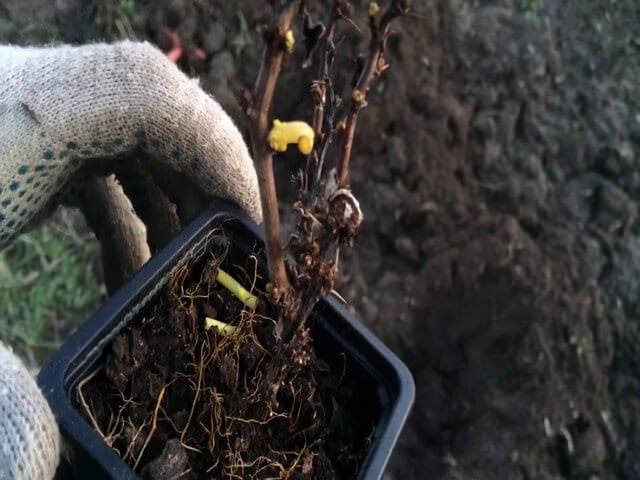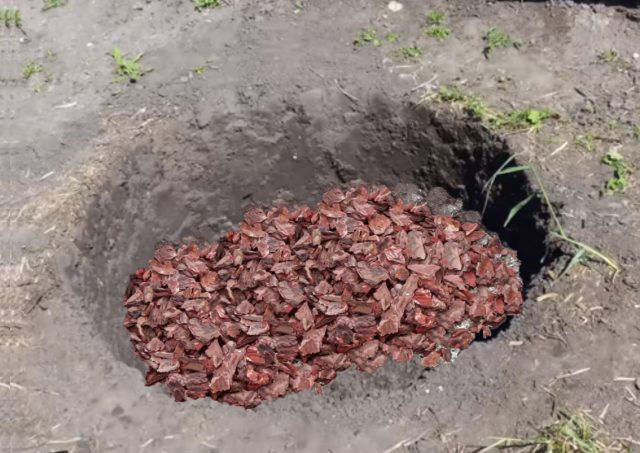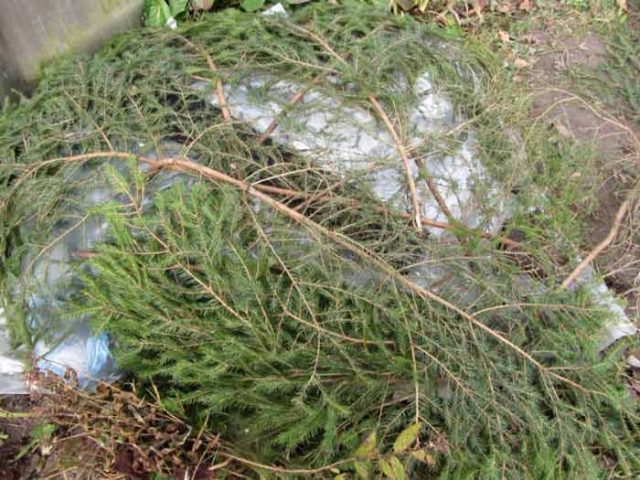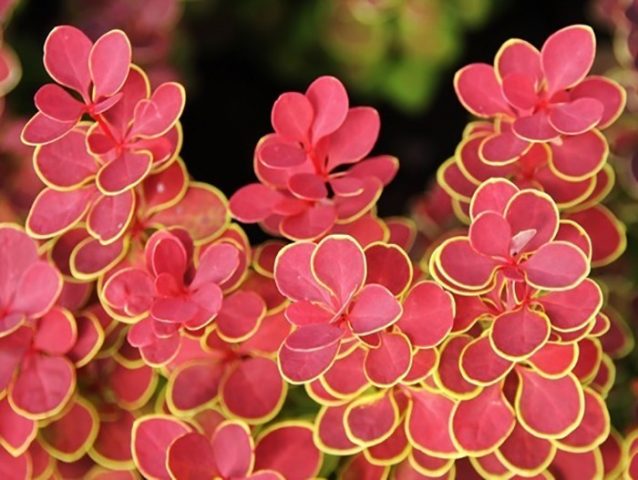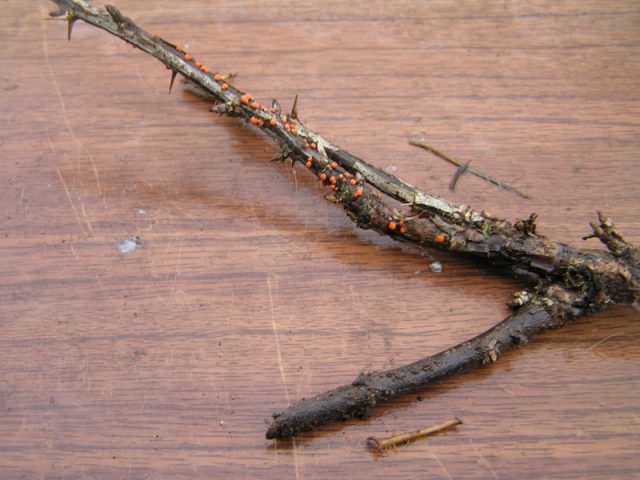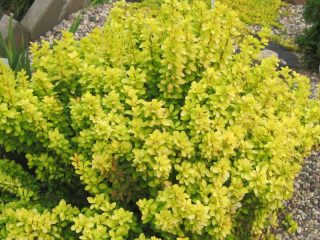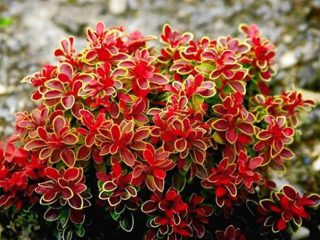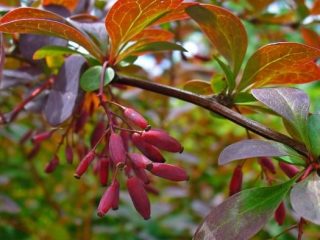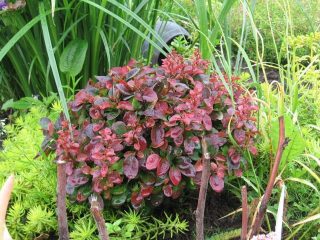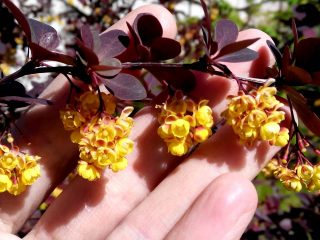Content
To ennoble garden and park areas, use some varieties of barberry. They have an attractive look and are not whimsical to care for. One of these shrubs is the Orange Sunrise barberry. This plant looks quite impressive, thanks to the bright rounded leaves.
Description of barberry Thunberg Orange Sunrise
The shrub grows no more than 1.5 m in height. Has densely leafy red erect branches. The leaves are rounded in the shape of a coin, bright orange or scarlet, up to 3 cm long. In older shrubs, a yellow border appears along the edge of the leaves. This color allows you to grow barberry Sunrise as an ornamental plant.
Photos and descriptions of Barberry Thunberg Orange Sunrise are presented below:
Barberry blooms in early May. Single red flowers with yellow stamens grow densely throughout the shoot. The shrub blooms for about 3 weeks.
On the shoots of adult plants, sharp, elastic spines appear, at least 1 cm long. The branches are densely covered with them. This allows the Orange Sunrise barberry to be used as a hedge.
In autumn, the shrub bears fruit. Rounded, slightly elongated red fruits appear on it. They are not eaten because of their bitter taste.
The homeland of the Thunberg barberry is the Far East. The Orange Sunrise variety was bred in the nursery.
Planting and leaving
All barberries are unpretentious, but they love the sun very much. On the well-lit side, the shrub takes root better after planting, its color is brighter.
Seedling and planting plot preparation
Sunrise barberry seedling is purchased in nurseries. Such a plant is well fertilized and takes root better. Choose a shrub with a well-developed root system. Shoots and leaves are clean, not damaged. Before planting, the rhizome of the barberry is wrapped in a damp cloth and the seedling is left for half an hour. After the root is soaked in a solution of water and growth stimulant.
At this time, a pit is being prepared for planting. It is located on a sunny, poorly wind-blown area. The depth and width of the fossa are measured according to the size of the rhizome. The root collar should be 1 cm below the soil level, and the rhizome should easily fit in the hole in a straightened form. For planting, choose fertile soils or fertilize the soil before rooting. The earth must be thoroughly loosened.
Planting barberry Thunberg Orange Sunrise
Shrub seedlings are rooted in the spring, when night frosts pass. In summer, the plant will take root and grow stronger before the onset of winter cold weather.
The roots of Barberry Orange Sunrise can rot from the abundance of groundwater or in excessively humid areas. To prevent this from happening, drainage is done in the hole before planting. For this, expanded clay, small stones or broken brick are laid on the bottom of the planting pit with a layer of at least 10 cm. Sprinkle on top with a layer of earth.
The root is placed in a hole, sprinkled with soil mixed with sand and humus in equal parts, trampled. After that, a bucket of water is poured under the bush. If the soil is acidic, it must be fertilized with slaked lime (300 g) or wood ash (200 g). Saplings are placed at a distance of half a meter from each other.
Watering and feeding
In order for the Orange Sunrise barberry to develop well and not lose its decorative qualities, it must be regularly watered and fed.
In the spring, nitrogen fertilizers are applied at the root. You can water the bush with urea.To do this, 20 g of fertilizer is diluted in 10 liters of water. After that, the shrub is fertilized twice a year: in summer and autumn. For additional feeding, multi-component fertilizers are suitable.
In summer, the shrub is watered once every 7 days. Since barberry does not like excessive moisture, it is important to regularly loosen the soil in the root area. After watering, it is good to mulch the soil with sawdust or peat.
Pruning
Regular pruning will create a beautiful bush shape. The first pruning of the shoots is done immediately after planting. To do this, they are shortened by a third.
In autumn, dry and damaged shoots are cut off, which do not make it possible to form a beautiful crown.
In the spring, pruning is also carried out, shortening all shoots by about a third. This stimulates the growth of new branches, the shrub becomes more lush.
Preparing for winter
Barberry Orange Sunrise is not a frost-resistant plant, and it is insulated for the winter. Young plants are completely covered with spruce branches.
Older plants should be covered with dry leaves and burlap:
- To do this, the shoots are tied in pairs and bent to the ground.
- Then they are fastened with staples to the soil. A layer of dry leaves is poured on top.
- After that, the natural insulation is covered with burlap.
Instead of burlap, you can take agrofibre or roofing paper.
Reproduction
Barberry Orange Sunrise is propagated by cuttings, less often by seeds. But this is a very long and laborious process, so it is easier to get a young plant from the shoot.
To do this, you need to do the following:
- Find 2-3 green, healthy twigs with well-developed shoots on the Orange barberry bush.
- The leaves are removed from the branches, the resulting sticks are cut into 2-3 parts at an acute angle.
- Both ends of the cuttings obtained are soaked in a growth accelerator solution.
After twigs 15-20 cm long, one end is placed in a transparent container with water. Once the root has developed, the plants are planted in containers filled with soil. In the spring they are rooted in open ground.
Diseases and pests
Barberry Orange Sunrise is susceptible to pests and diseases of garden plants, the main of which is powdery mildew. It is easy to identify - it is a white bloom on the leaves of barberry. For the treatment and prevention of the disease, the bush is sprayed with fungicides.
When orange and yellow spots appear on the leaves, rust is suspected. This is a common fungal infection of fungal plants. If you run it, the plant may die. Various types of garden plant antifungal agents can be used to combat rust.
All types of garden spotting affect the Thunberg barberry. The disease manifests itself in spots of various colors on the leaves of the bush. Treatment begins in early spring before flowering. The bush is treated with special preparations, including a solution of copper sulfate.
Bacteriosis is a dangerous disease for the Orange Sunrise barberry. The defeat is manifested by thickening on the shoots and by breaking the bark. You can fight them only if the affected area is small. To do this, the damaged branches are cut off, and the cut sites are treated with garden varnish. After the bush is sprayed with a solution of copper sulfate.
Drying of shoots is a common disease of barberries. The plant begins to wither and wither for no apparent reason. At this time, the fungus infects the root system of the bush and destroys it. In this case, the affected shoots are cut off, and the crown is sprayed with fungicides.
Pests of barberry Orange Sunrise:
- aphid;
- flower nursery;
- barberry sawfly.
Chlorophos is used to combat these types of pests. The bush is sprayed in spring and autumn for prevention. You can use traditional methods: spraying with a solution of laundry soap or tobacco.
You should not wait for the death of the plant, you should use modern drugs.
To destroy pests quickly and effectively, acaricides and insecticides are used. These modern remedies do well with most of the known garden pests. Suitable for processing drugs: "Biotlin", "Karbofos", "Antitlin".
Conclusion
Garden shrub barberry Orange Sunrise grows well and develops only if it falls into caring hands. Regular watering, pruning and loosening of the soil is a guarantee that the bush will show its decorative qualities in all its glory. Scarlet leaves with yellow edging and a lush crown will be a real decoration for any garden. Orange Sunrise barberry is used to form a bright, impenetrable hedge or use it to create flower bed borders. A composition of several barberries of various colors looks spectacular.
